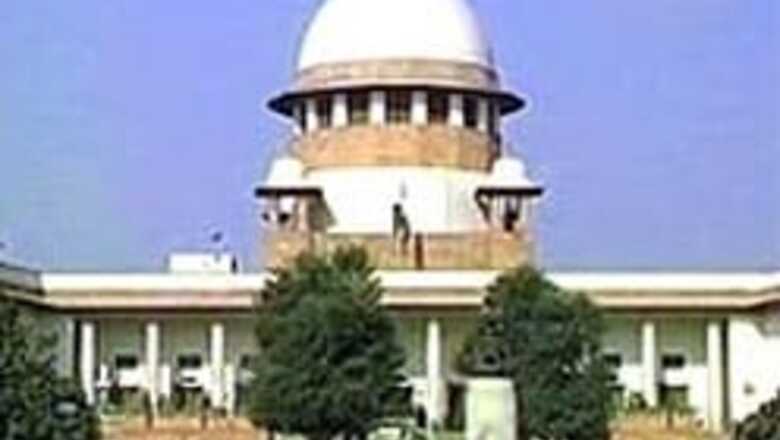
views
New Delhi: The Supreme Court on Wednesday held that in case of death of a married woman under suspicious circumstances, the husband must explain the circumstances else he can be held responsible for her death.
The ruling was handed down by a bench comprising Justices G P Mathur and R V Raveendran while dismissing the appeal of the appellant husband Trimukh Maroti Kirkan against the Bombay High Court judgment reversing the trial court order acquitting the accused.
High Court had set aside the order of acquittal and convicted the accused under Section 302 IPC and sentenced him to life imprisonment with a fine of Rs 2000 on July 27, 2005.
The victim was found dead in her matrimonial home on November 4, 1996 nearly seven years after her marriage.
The appellant concocted a story of snake-bite and claimed that she had died of snake bite but failed to explain the injuries on the body of the deceased and the medical report also confirmed that the victim had died of strangulation.
The conviction of Maroti and Nilawati, in-laws of the deceased under section 498A IPC was set aside by the High Court.
The court in its judgment observed, ''In a case based on circumstantial evidence where no eye-witness account is available there is another principle of law which must be kept in mind. The principle is that when an incriminating circumstance is put to the accused and the said accused either offers no explanation or offers an explanation which is found to be untrue, then the same becomes an additional link in the chain of circumstances to make it complete.
When the death had occured in his custody, the appellant is under an obligation to give plausible explanation for the cause of her death in his statement under section 313 Cr P C. The mere denial of the prosecution case coupled with absence of any explanation were held to be inconsistent with the innocence of the accused but consistent with the hypothesis that the appellant is a prime accused in the commission of murder of his wife.''
The appellant was driving a tempo and was demanding Rs 25,000 from the parents of the deceased to buy a new tempo.
The apex court concluded by noting, ''The high court was, therefore perfectly right in allowing the appeal filed by the state and in convicting the appellant under section 302 IPC and sentencing him thereunder. We, therefore do not find any merit in the appeal which is hereby dismissed.''


















Comments
0 comment